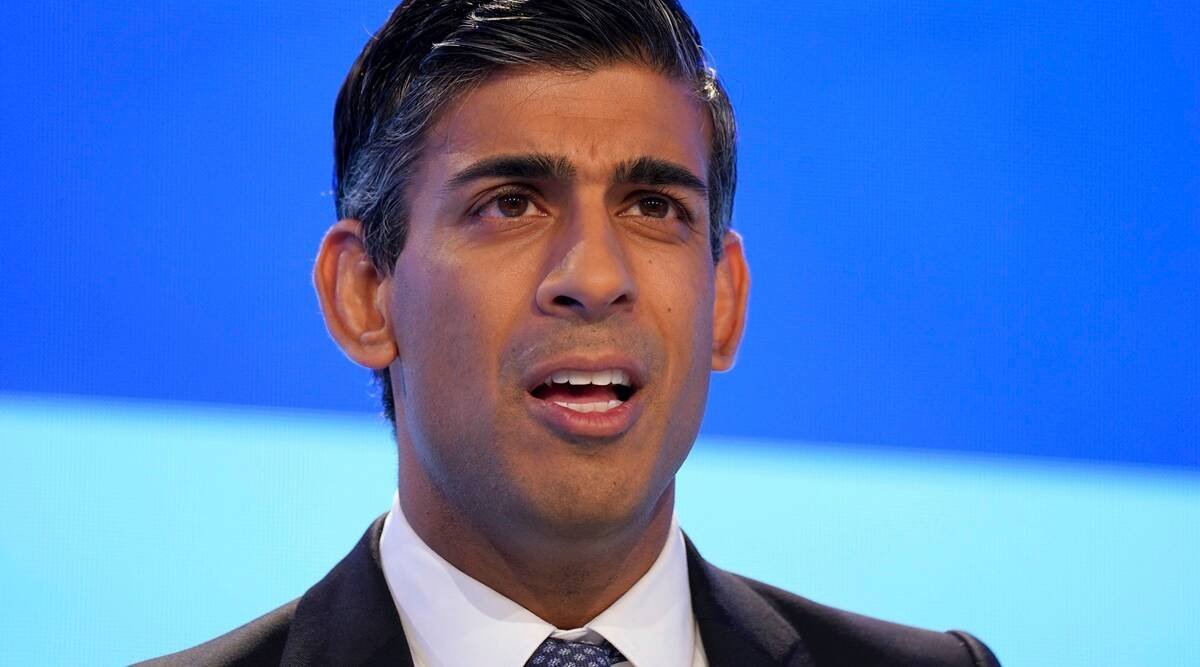Rishi Sunak Signals End of ‘Golden Era’ of Relations Between Britain and China – In his first major foreign policy address, Rishi Sunak signaled the end of the “golden era” of relations between Britain and China, warning of the growing authoritarianism of Xi Jinping’s rule. The prime minister threw his support behind demonstrators by condemning Beijing’s crackdown as well as the assault on a BBC journalist as Chinese authorities attempted to quell the biggest levels of civil disobedience seen in decades.
Sunak hinted a hardening of diplomatic ties and referred to China as a “systemic challenge to our values and interests,” while reaffirming that the UK’s defence and security plan for the next decade, known as the Integrated Review, would be updated in the new year. However, he stopped short of calling China a threat, admitting western countries could not ignore its influence over world affairs and ability to help with shared challenges such as economic stability and climate change.
People Also Read: Taiwan President Resigns as Party Head After Local Election Losses
The decision was a sudden shift from his more hardline approach while campaigning for the Conservative leadership in the summer, prompting accusations that it was “thin as gruel” and comparable to the “appeasement” strategy initially taken by Britain against the Nazis in the 1930s. Sunak used tough language to rebuke previous UK governments’ approach to China, saying he would reject “short-termism or wishful thinking.” Recalling a term coined by David Cameron in 2015, the prime minister told dignitaries at the Lord Mayor’s Banquet on Monday night: “The so-called ‘golden era’ is over, along with the naive idea that trade would lead to social and political reform.”
Sunak cautioned that Britain’s adversaries were planning for the “long-term,” and the UK needed to take a “longer-term view on China.” He said: “We recognise China poses a systemic challenge to our values and interests, a challenge that grows more acute as it moves towards even greater authoritarianism.” “Instead of listening to their people’s protests, the Chinese government has chosen to crack down further, including by assaulting a BBC journalist.”
“The media – and our parliamentarians – must be able to highlight these issues without sanction, including calling out abuses in Xinjiang – and the curtailment of freedom in Hong Kong.” Sunak was referring to China sanctioning some Tory MPs last year for raising concerns about what the UN has called “serious human rights violations” against Uyghur Muslims in the Xinjiang province. It was the clearest indication in his speech that it partly aimed to reassure some in his party who fear he is soft on standing up to Beijing.
However, one sanctioned member of parliament, former Tory leader Iain Duncan Smith, argued that Sunak should describe China as a “threat” in the new Integrated Review, rather than a “systemic challenge.” “China understands strength, they also recognise weakness and they’ll see this as a weakness,” he said, adding Sunak’s vow to show “robust pragmatism” was “tautological nonsense” and amounted to “appeasement.”
He told Channel 4 News, “I just feel the road to appeasement we went through in the 1930s, if we’ve learned any lesson at all it is the more you appease dictatorships, that impose authority on their people and strip away human rights, the more you drift into dangerous waters.” Sunak stressed the UK would deepen its ties with Indo-Pacific nations, given he said the region would deliver more than half of global growth compared with just a quarter from Europe and North America combined by 2050.
He added: “By deepening these ties we’ll help protect the arteries and ventricles of the global economy, supporting security and prosperity – both at home in our European neighbourhood and in the Indo-Pacific.” After visiting Ukraine this month, Sunak condemned Russia for “challenging the fundamental principles” of the UN charter. On the trip, which took place days before the start of the World Cup, Sunak said he witnessed seen a child’s football turned into a “booby trap” containing an explosive device.
People Also Read: Angela Merkel Says She Lost Influence Over Putin as a Lame Duck Leader
“It defies belief, so be in no doubt we will stand with Ukraine for as long as it takes,” the prime minister said. “We will maintain or increase our military aid next year. And we will provide new support for air defence, to protect the Ukrainian people and the critical infrastructure they rely on.” Sunak did admit the botched withdrawal of western forces from Afghanistan – as well as recent economic strife and the handling of the Covid pandemic – had led some to claim “the west was weak.”
Sunak stressed that, despite the importance of working with close allies, there will never be a relationship with Brussels based on conformance with EU law. “Instead, we’ll foster respectful, mature relationships with our European neighbours on shared issues like energy and illegal migration to strengthen our resilience against strategic vulnerabilities,” he said.




